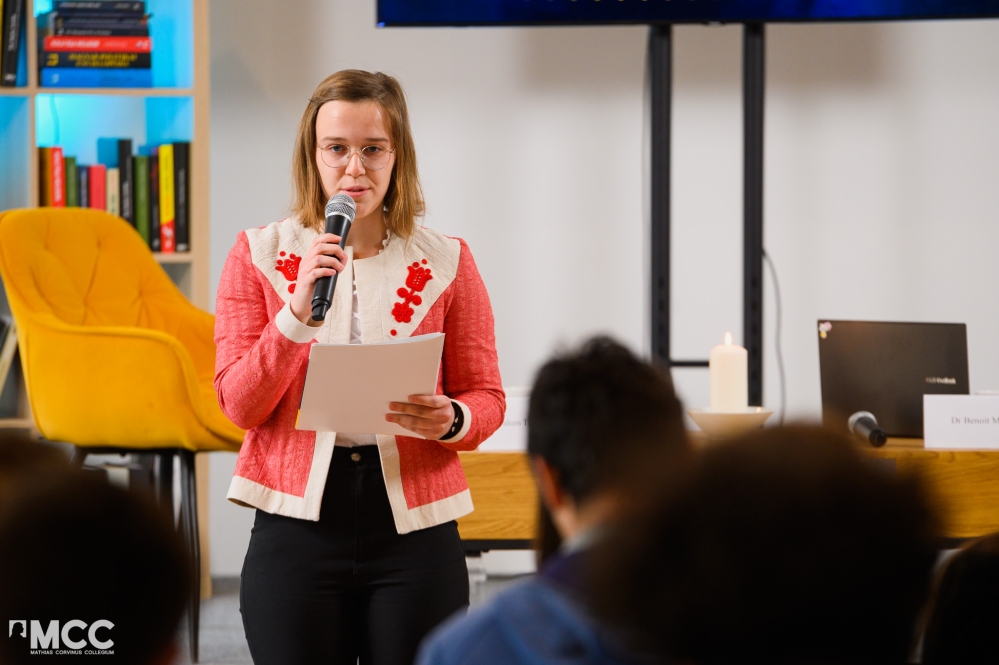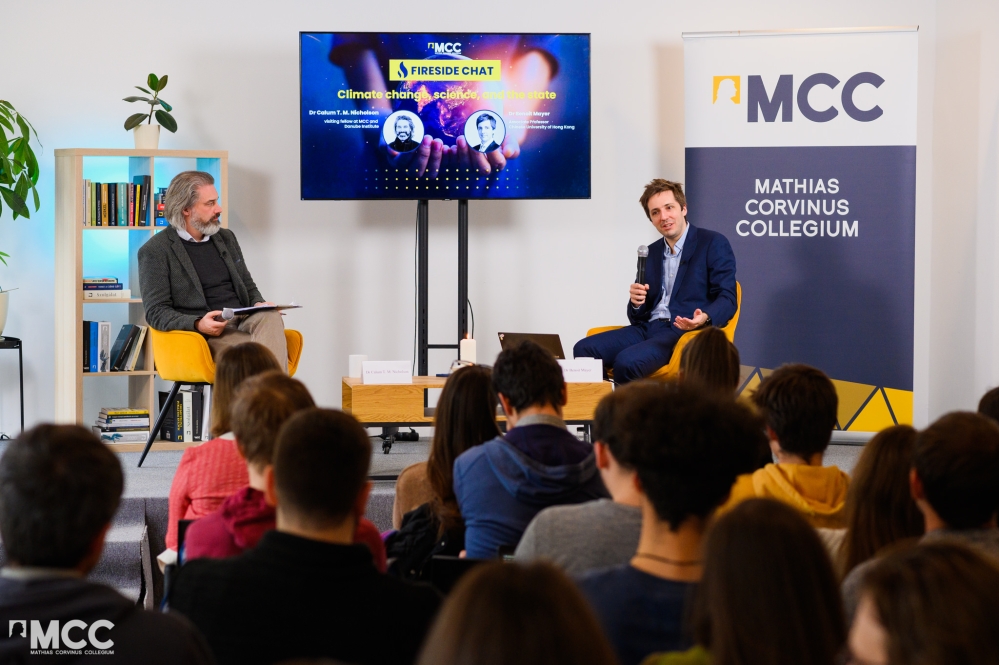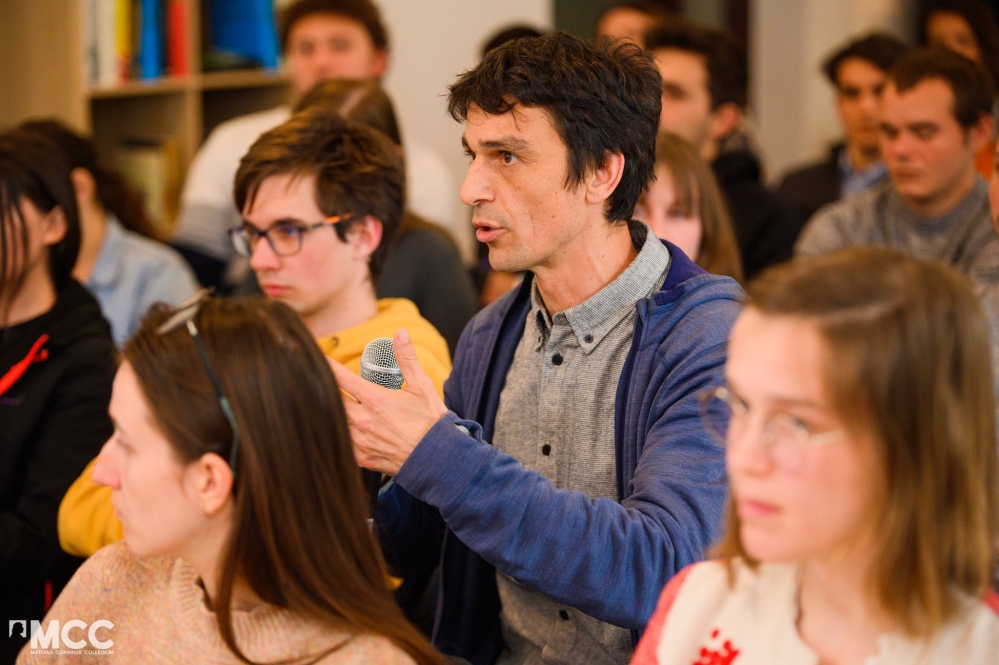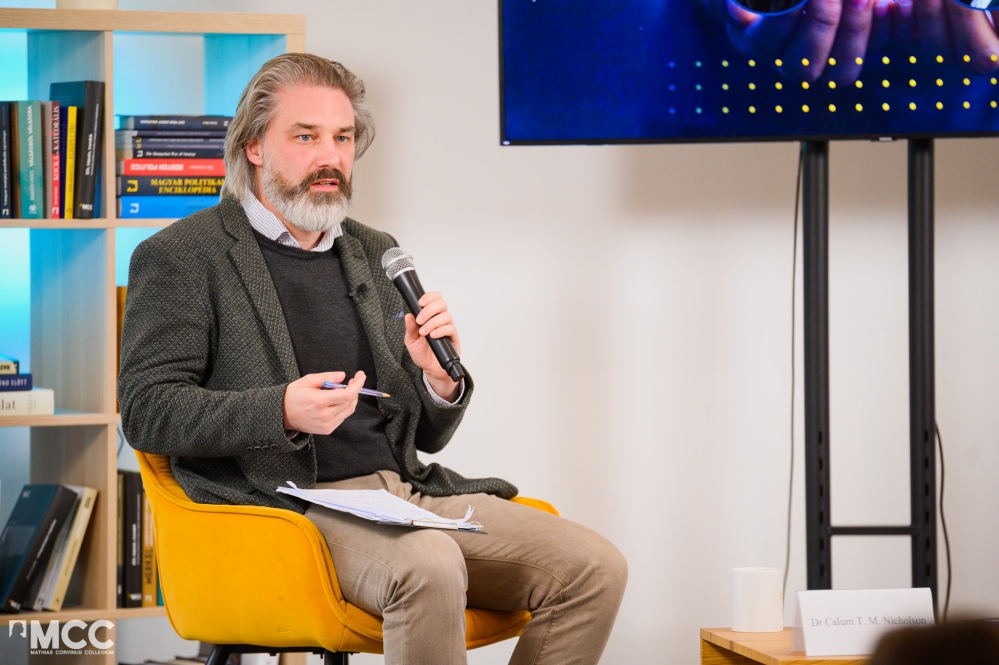Reading time: 4 minutes
Dr Benoit Mayer, Associate Professor at the Faculty of Law of the Chinese University of Hong Kong and Dr Calum T. M. Nicholson, British-Canadian anthropologist, discussed the possibilities and socio-political background of climate change mitigation at an event organised by Mathias Corvinus Collegium (MCC) in Kolozsvár on Thursday, 6 April.
MCC organised a public discussion on Climate Change, Science and State with foreign guests in Cluj Napoca. Orsolya Bálint, a student of the MCC's University Program, welcomed the audience and opened the floor to the speakers. Dr Benoit Mayer is an Associate Professor at the Faculty of Law of the Chinese University of Hong Kong. He teaches climate, environmental, and international law, and his research explores various aspects of international and comparative climate law. His latest book, The International Law on Climate Change Mitigation, was published in the Oxford Monographs on International Law series. Dr Calum T. M. Nicholson studied social anthropology at Cambridge, migration studies at Oxford, and completed his PhD in human geography. Earlier he served as a development consultant and a researcher for the UK Parliament. He researches the social consequences of climate change and the impact of social media. He is currently a visiting fellow at MCC and Danube Institute.
There is now clear evidence that human interference is causing climate change and a consensus that it must be mitigated. Experts talk of a gradual transition, as too drastic a reduction in emissions would cause difficulties for society. But who should decide how to tackle climate change and what countries or regions should do? The main candidates are national, global and scientific authorities, explains Benoit Mayer. He believes that all three types of institutions are relevant and that an effective combination of all three will be the solution in the future. However, each of these institutions has limitations and problems. Science-based government is non-democratic and scientific institutions lack legitimacy to make political decisions. States alone cannot address global issues, while international institutions risk creating a dominance of strong states over weaker ones. Each provides some elements for a solution, but not the final answer.
Of these three pillars, states are the most effective in policy-making. All states have an interest in mitigating climate change, while at the same time they try to take advantage of the efforts of others. International cooperation is about everyone doing their part, said Benoit Mayer. Global institutions are about ensuring the widest possible cooperation between countries. They seek to set global goals, but also to define the role of states and to ensure that they deliver. In his research, Benoit Mayer has found that economics is the discipline best placed to predict the costs and social impacts of reducing emissions. It is necessary to find the economically optimal solution in mitigation processes.
In order to make progress, we need action at all three levels, no one institution alone is enough. Unfortunately, the boundaries between science and politics are blurring, which is why there is a general distrust of scientific institutions today. At the same time, the EU and the developed countries expect their strategies to work in the rest of the world, while economic, social and even cultural conditions do not allow this in many places. As long as we do not accept differences in values, negotiations are futile, the experts explained. As things stand, there will be no change in the long term, no real response to climate change, but the triangle of science, states and international organisations could find a solution if they can strike a balance.
"Another substantive discussion has been added to the MCC’s programme. The fireside chats were a series of evening radio addresses given by Franklin D. Roosevelt. He spoke with familiarity to millions of listeners about major social issues and gained their attention by addressing the audience as if they were seated around his fireplace. These speeches inspired the MCC Fireside chat, a public discussion where invited experts share their thoughts on topics of public interest of our time", said Botond Talpas, General Director of MCC Transylvania, adding that the Collegium seeks to bring experts and academics from home and abroad to every corner of Transylvania to discuss issues of public interest and the major social issues of our time in public debates.



